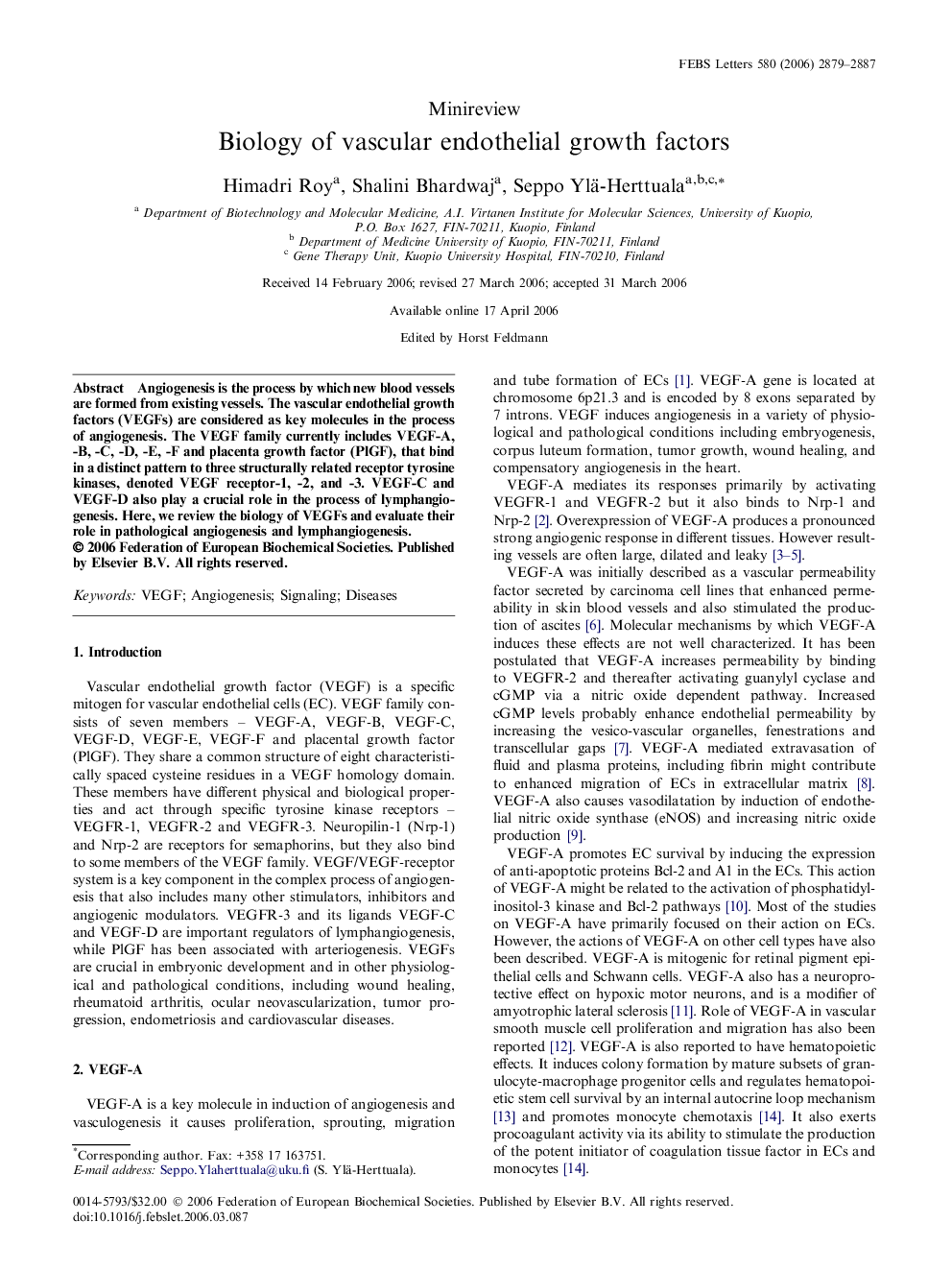| Article ID | Journal | Published Year | Pages | File Type |
|---|---|---|---|---|
| 2052748 | FEBS Letters | 2006 | 9 Pages |
Abstract
Angiogenesis is the process by which new blood vessels are formed from existing vessels. The vascular endothelial growth factors (VEGFs) are considered as key molecules in the process of angiogenesis. The VEGF family currently includes VEGF-A, -B, -C, -D, -E, -F and placenta growth factor (PlGF), that bind in a distinct pattern to three structurally related receptor tyrosine kinases, denoted VEGF receptor-1, -2, and -3. VEGF-C and VEGF-D also play a crucial role in the process of lymphangiogenesis. Here, we review the biology of VEGFs and evaluate their role in pathological angiogenesis and lymphangiogenesis.
Related Topics
Life Sciences
Agricultural and Biological Sciences
Plant Science
Authors
Himadri Roy, Shalini Bhardwaj, Seppo Ylä-Herttuala,
